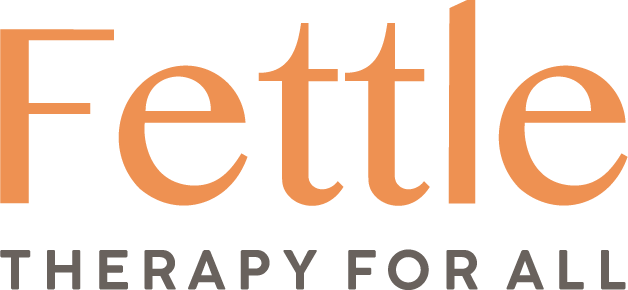What is DBT? Regulate Destructive Emotions with Dialectical Behaviour Therapy
Sometimes, life is challenging. It is not easy to manage our emotions in tough times. We may have difficulty communicating with others, which may unintentionally cause conflicts. We might feel like we are on an emotional roller coaster without any control of where we are heading.
If you feel this way, then Dialectical Behavioural Therapy may be for you.
Learn about DBT Therapy in Ireland – What is Dialectical Behaviour Therapy?
DBT is short for Dialectical Behaviour Therapy. It's an evidence-based Cognitive Behavioural Therapy (CBT) that integrates mindfulness practices. DBT skills can help anyone who struggles with relationship conflicts, coping, and managing their emotions. DBT helps people strengthen their coping skills, reduces self-harm behaviours, improves self-defeating thinking patterns, and increases emotional regulation. It also validates and empowers individuals to learn and apply skills to manage their cravings, urges, and emotions. The goal of DBT is to equip individuals with the tools to create a life worth living.
You may be asking, how does it work?
Let's begin with the basics.
DBT is underpinned by mindfulness. When we are mindful, we can notice our thoughts without letting them dominate us. We can resist acting on urges and instead make better decisions for ourselves. Mindfulness makes it easier to focus on, savour, and enjoy the good times life brings. By strengthening our mindfulness skills, we can become more aware of our emotions and improve our interpersonal effectiveness skills.
Dialectical Behavioral Therapy is generally divided into four stages of treatment.
The Four Stages of DBT
Stage 1
In stage 1, clients move toward gaining better behavioural control over their destructive impulses and urges, such as using drugs, self-harming, or aggressive outbursts.
Stage 2
During stage 2, the therapist will equip the client with the tools and emotional regulation skills to help them create an emotionally healthy space. During this stage, typically, past traumas and PTSD would be addressed.
Stage 3
Stage 3 is where clients learn to live a meaningful life of their choosing. Now that they have more control over their behaviours and are mentally healthier, they can learn how to live a vibrant life. In this stage, clients will define their goals, build self-worth and take action to create genuine happiness. The primary purpose of DBT in stage 3 is for the client to live a life of their choosing while being able to cope with the challenges that life throws their way.
Stage 4
Unlike the first three stages, stage 4 is necessary for all patients. During stage 4, clients learn to find deeper meaning through a spiritual existence. Many people need spiritual fulfilment to meet their life goals. During stage 4, clients will gain a sense of connectedness from being a part of a greater whole.
If you are interested in learning more about DBT, there are a variety of formats available for you. You can engage in dialectical behaviour therapy training where you can learn DBT skills from a qualified trainer. You can also seek DBT therapy. Fettle Online Therapy has private DBT therapists in Ireland, and you can browse their bios here.
A large body of research has found that DBT improves mental health outcomes and quality of life. You will learn an abundance of skills, such as opposite action, which are effective in helping people navigate stressful situations. The skills also assist individuals in finding meaning while managing difficult emotions and pain.
Frequently Asked Questions About DBT
What is the difference between DBT and CBT?
Despite their similarities, there are some critical differences between CBT and DBT. Standard cognitive behavioural therapy helps clients identify and change problematic ways of thinking and behaving. At the same time, DBT assists clients in regulating extreme emotions and improving relationships through behaviour change and validation.
In addition to this primary distinction, below are five contrasts to consider when weighing DBT vs. CBT:
Time commitment: Usually, DBT is a more comprehensive treatment process than traditional CBT. CBT consists of weekly therapy sessions, whereas a complete DBT protocol entails individual therapy, coaching calls, and skills training.
Focus: CBT focuses on changing problematic thoughts from negative to positive. In comparison, DBT addresses challenging thoughts through using mindfulness. DBT also concentrates on emotions. In DBT, the validation of feelings and the understanding that emotions result from one's cognition and a physical experience are essential components of treatment.
Interpersonal relationships: While CBT can concentrate on addressing relationship issues, DBT intentionally focuses on interpersonal connections more extensively. Because most emotionally provocative situations involve family, friends, or a significant other, DBT teaches skills that help regulate overwhelming emotional responses within such instances.
Skills: CBT teaches individuals how their feelings, thoughts, and behaviours interact and can be altered to generate a more life-enhancing outcome. In CBT, the skills learned will depend on the client's personal needs. Contrastingly, DBT skills come as a set curriculum, and each client will learn all of the skill modules throughout treatment.
Clinical Presentation: CBT and DBT can treat a wide array of mental health issues. However, since the development of Dialectical Behavioural Therapy, it has become a gold-standard treatment for borderline personality disorder and clients with self-harming or high-risk behaviours such as addiction and eating disorders.
What is emotional regulation?
Emotional regulation refers to the ability to manage our emotions more effectively. We could all benefit from learning ways to regulate our emotions. Dialectical behavioural therapy has developed proven coping strategies that allow individuals to self-regulate overpowering emotions.
The great news is that emotional self-regulation is not a static trait. Emotion regulation skills can be learned and improved over time. Learning how to manage challenging experiences can improve your mental, emotional, and physical health.
DBT skill-building can help you find a sense of balance as you move through life's challenges. If you need some extra support talking to a trained DBT therapist about your problems and worries will help. Fettle provides DBT therapy in Ireland.


